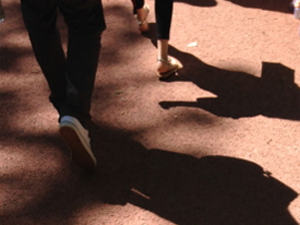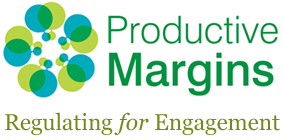Using creative methods to engage change with young people
 The 4Ms ran from 2013 – 2015 and was a project which aimed to develop new methods of engagement which will mobilise the collective knowledge, resources, and capabilities of communities in the South Wales valleys. The project was led by a research team at Cardiff University which included programme co-investigators Dr Eva Elliot, Professor Martin Innes, Professor Gabrielle Ivinson and Professor Emma Renold and, Dr Gareth Thomas (RA) and Eve Exley (Fieldwork Assistant).
The 4Ms ran from 2013 – 2015 and was a project which aimed to develop new methods of engagement which will mobilise the collective knowledge, resources, and capabilities of communities in the South Wales valleys. The project was led by a research team at Cardiff University which included programme co-investigators Dr Eva Elliot, Professor Martin Innes, Professor Gabrielle Ivinson and Professor Emma Renold and, Dr Gareth Thomas (RA) and Eve Exley (Fieldwork Assistant).
Specifically, the project involved working with young people in North Merthyr Tydfil to map their experiences, perceptions, and concerns around issues of safety, wellbeing, and space.
The project aimed to facilitate young people’s involvement in the research process and encourage alternative modes of expression through the development of creative methodologies such as filmmaking, photography, dance and other creative craft activities. Through this the project sought to co-produce modes through which academic and community partners could support, motivate, and empower young people to speak out about the barriers they encounter in participating as full public citizens.
The project resisted defining the details of research activities too early and this enabled an approach that was flexible and responsive to emergent themes and priorities coming from the community. As such, the 4Ms project had a number of distinct but interwoven strands:
GIS mapping
In October 2014 the research team worked with young people using a qualitative Geographical Information System (GIS) platform which has previously been employed to map perceptions of crime and safety in a number of UK areas. They completed 56 GIS interviews with young people aged 14-15 at two schools in Merthyr around issues of safety, wellbeing, place, and regulation in their community.
GIS and Zebras
The GIS interviews were put to use through workshops with young people, the research team and Citizens Cymru and informed the development of the Gurnos Zebras public action event.
GIS and Sexual Harassment and Relationship Matters Campaign
Professor Emma Renold in collaboration with Citizens Cymru was able to integrate some of the GIS interview data into her Make Relationships Matter lunch-clubs. These weekly lunch-clubs involved creating innovative artwork with a group of young women. The art produced directly inspired the 2015 public action on sexual harassment and everyday sexism, in which the young women involved in the lunch club joined other young people in making and delivering Valentine’s Day cards – which included the policy poem It‘s not too late, and hand written comments on why young people needed a healthy relationships education – to Welsh Assembly Members.
This public action was successful in supporting the education amendments on whole school approaches to relationships education through the ground-breaking Violence Against Women, Domestic Abuse and Sexual Violence (Wales) Act which received royal assent in 2015.
4Ms on film
In 2014 a a team of artists in South Wales (Futures Matters Collective, Fizzi Events) and choreographer (Jên Angharad) worked with the research team, young filmmakers from Forsythia Youth Centre (who had also been involved in the GIS interviewing and associated activities) and pupils from St Aloysius primary who were taking part in The Big Dance 2014 to create the film Light Moves, which, inspired by themes emerging from the GIS Interviews, sought to explore how young people feel about their place.
In 2015 this was further developed into a new body of artistic work including a film: Graphic Moves , sculptural exploration: Mashing Up The Land, and sound art: Found Sounds and Street Beats. The work was exhibited at the Abacus Gallery, Cardiff, The Riverfront, Newport and The Red House In Merthyr Tydfil.
Professor Emma Renold, Professor Gabrielle Ivinson, the artistic team and choreographer have a long history of working with young people in the geographical community and continue to explore new creative collaborations.
Key contacts
- Gabrielle Ivinson
Email: Ivinson@mmu.ac.uk - Emma Renold
Email: renold@cf.ac.uk - Eva Elliot, Academic Lead
Email: elliotte@cardiff.ac.uk - Gareth Thomas, Researcher
Email: thomasg23@cardiff.ac.uk









